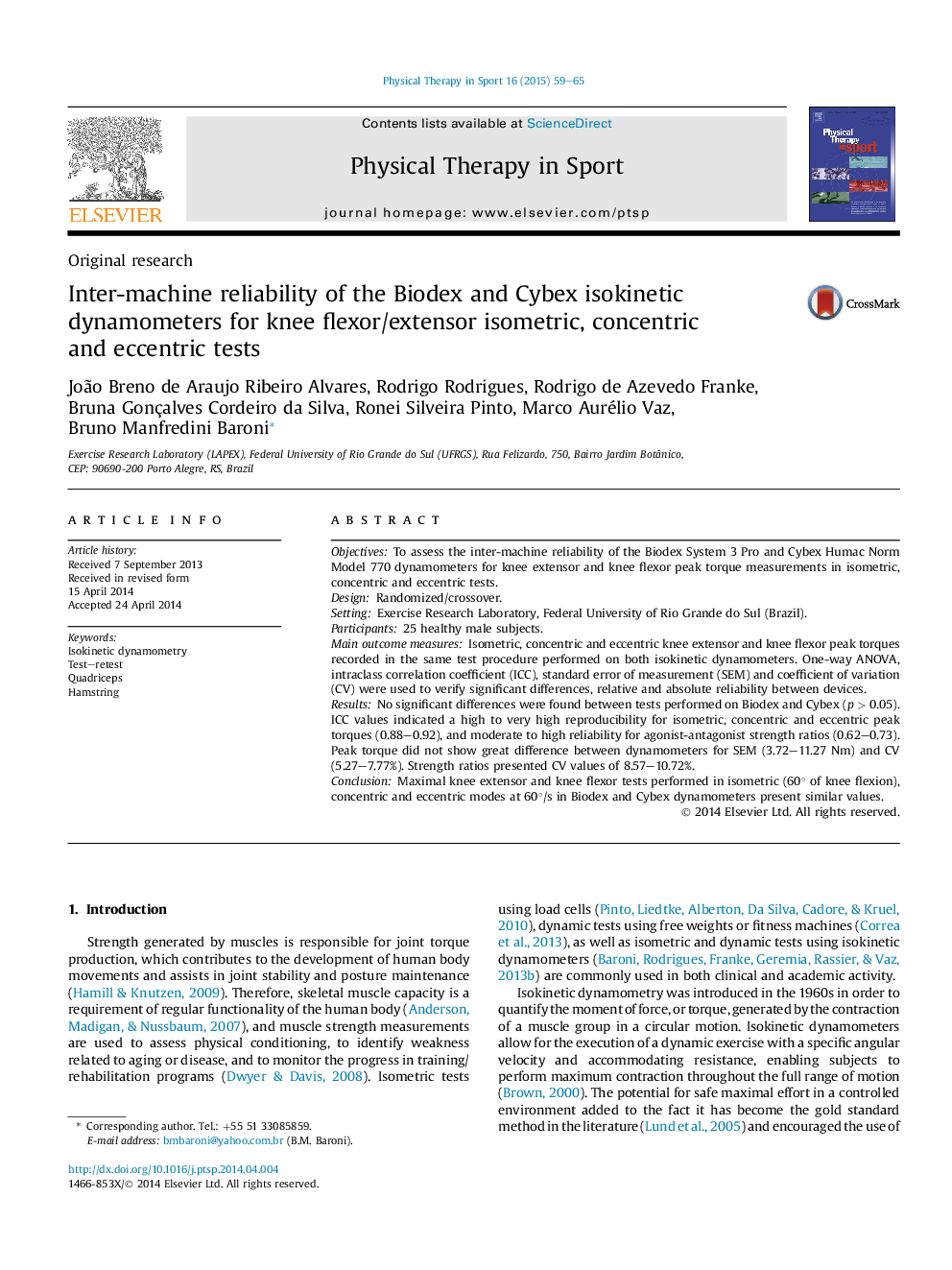| Article ID | Journal | Published Year | Pages | File Type |
|---|---|---|---|---|
| 2705820 | Physical Therapy in Sport | 2015 | 7 Pages |
•Knee extensor/flexor tests were performed using Biodex and Cybex isokinetic dynamometers.•Isometric peak torque measures were similar between devices.•Concentric and eccentric peak torque measures were similar between devices.•Conventional and functional ratios were similar between devices.
ObjectivesTo assess the inter-machine reliability of the Biodex System 3 Pro and Cybex Humac Norm Model 770 dynamometers for knee extensor and knee flexor peak torque measurements in isometric, concentric and eccentric tests.DesignRandomized/crossover.SettingExercise Research Laboratory, Federal University of Rio Grande do Sul (Brazil).Participants25 healthy male subjects.Main outcome measuresIsometric, concentric and eccentric knee extensor and knee flexor peak torques recorded in the same test procedure performed on both isokinetic dynamometers. One-way ANOVA, intraclass correlation coefficient (ICC), standard error of measurement (SEM) and coefficient of variation (CV) were used to verify significant differences, relative and absolute reliability between devices.ResultsNo significant differences were found between tests performed on Biodex and Cybex (p > 0.05). ICC values indicated a high to very high reproducibility for isometric, concentric and eccentric peak torques (0.88–0.92), and moderate to high reliability for agonist-antagonist strength ratios (0.62–0.73). Peak torque did not show great difference between dynamometers for SEM (3.72–11.27 Nm) and CV (5.27–7.77%). Strength ratios presented CV values of 8.57–10.72%.ConclusionMaximal knee extensor and knee flexor tests performed in isometric (60° of knee flexion), concentric and eccentric modes at 60°/s in Biodex and Cybex dynamometers present similar values.
